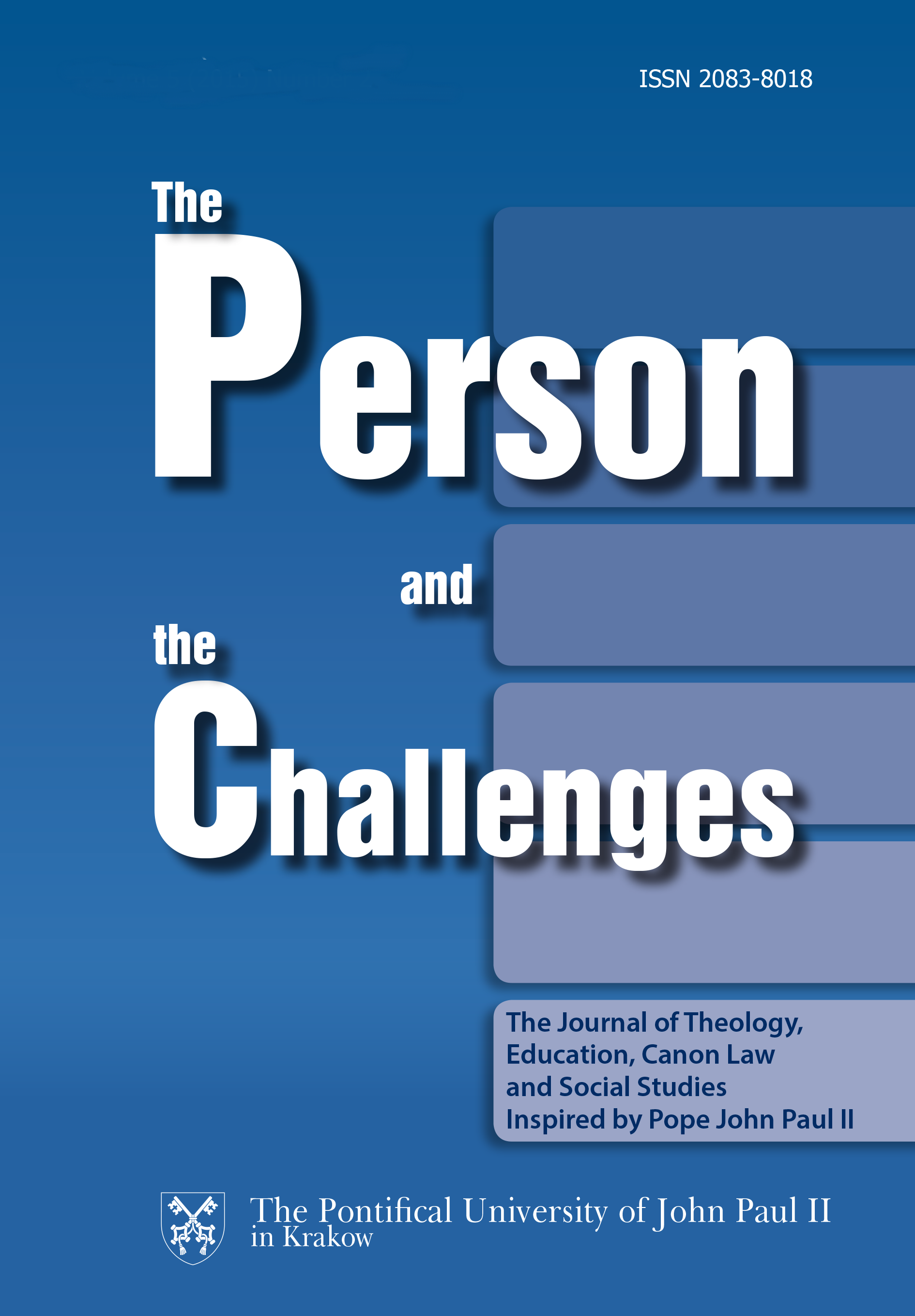Sensibilität und Motivation
zum sozialen Handeln in der Auffassung
Karol Wojtylas
Sensitivity and motivation for social action
in Karol Wojtyla’s thought
Author(s): Zbigniew WaleszczukSubject(s): Christian Theology and Religion, Pastoral Theology
Published by: Wydawnictwo Naukowe Uniwersytetu Papieskiego Jana Pawła II w Krakowie
Keywords: sensitivity; Karol Wojtyla; Acting Person; action of man;social action;
Summary/Abstract: Sensitivity, as the ability to respond to internal and external stimuli, undoubtedly plays an important role in the social action of persons. Without this ability -as in the case of indifference- human being lacks a perception that is necessary in response to a specific emergency situation or a need. This article focuses on the teaching of Karol Wojtyla in his major work Acting Person, with a particular emphasis on the question of the motivation of human action. We want to reply to three basic questions related to the topic: Does this ability strengthens or weakens the culture of the Internet age, especially in Western European society? What is the primary motive of human action? Is sensitivity an essential motive and a factor of development of the person and society? What practical consequences we can draw from the teachings of the Krakow thinker about sensitivity? A person, as defined by Wojtyla, that is isolated, remains indifferent. Similarly persons who are hypersensitive hinders themselves to a mature participation in responsible love. The first quality (indifference) leads persons to flee from their duties. The second (hypersensitivity) leads persons to be overwhelmed by this challenge. The first we can describe as lack of feeling, the second as excessive compassion. The diagnosis of Wojtyla (it is more important to be than to have) remains very current and is an important stimulus in which direction to go to promote motivation for social action, and to build a society of communion of persons. Instead of an individualistic dominated competitive struggle of egos, we should try to realize a society in which the encounter of persons is characterized by mutual devotion in love.
- Issue Year: 7/2017
- Issue No: 1
- Page Range: 63-75
- Page Count: 13
- Language: German

